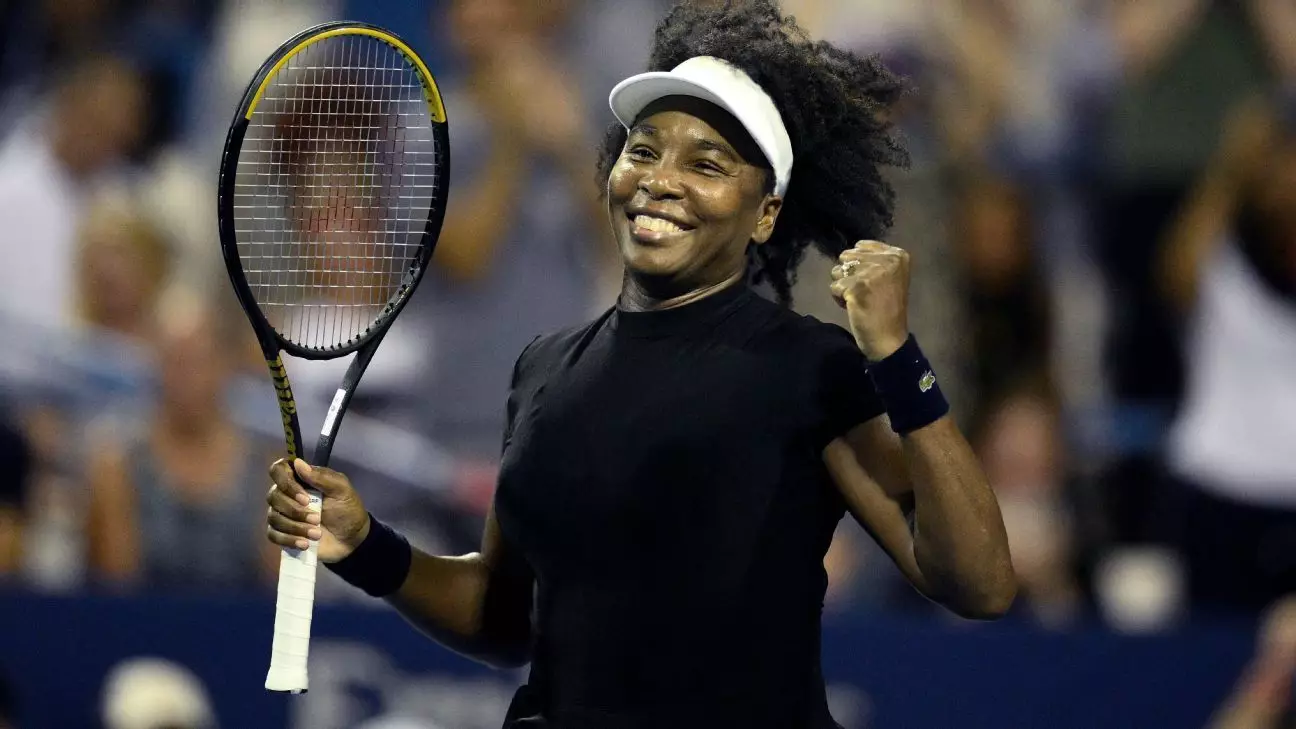Venus Williams’ decision to re-enter the grand stages of tennis at 45 is not just a personal milestone; it’s a testament to unwavering determination and resilience. For years, tennis fans have watched her evolve from a young prodigy to a seasoned veteran, but her latest return defies the natural decline most athletes face. She will enter the US Open as the oldest singles competitor in decades—an extraordinary feat that challenges societal notions of age and athletic capability. While her peers have long since stepped away from the spotlight, Venus’s resurgence sends a powerful message: age is just a number when passion and perseverance remain undiminished.
Her comeback is also a strategic move driven by a genuine love for the game. After a period of relative silence and injury setbacks, her participation signals not just a desire to compete, but an assertion of her enduring competitive spirit. The wild-card invitation by the USTA serves as recognition of her legacy and ongoing influence in the sport. This isn’t merely about adding another tournament to her illustrious career; it’s about rewriting narratives around mature athletes, pushing boundaries, and inspiring a new generation to believe that greatness isn’t confined by age.
Redefining the Legacy of a Tennis Legend
Venus Williams’ career is a mosaic of groundbreaking achievements that altered the landscape of women’s tennis. With singles titles in hand, including two US Open victories, and a collection of doubles and mixed doubles trophies, her influence persists long after her peak years. Her rivalry with sister Serena has created some of the most iconic moments in tennis history, elevating her to legendary status.
Yet, her story extends beyond the courtroom—her battles with injuries, health issues, and personal challenges have humanized her presence in the sport. She’s shown that resilience involves more than just physical strength; it’s about mental fortitude and the will to continue despite setbacks. Her recent return, after surgery and health struggles, underscores her unshakeable commitment to the sport. It’s a testament to her self-awareness and refusal to accept that her prime years define her limits. Instead, she is redefining what it means to be an athlete at 45, highlighting that perseverance and passion can sustain a career beyond conventional timelines.
The Cultural and Inspirational Impact of Her Comeback
Venus’s return isn’t solely about personal achievement; it’s a statement echoing through the sporting world and society at large. Her participation challenges ageist stereotypes that often pitch athletes into retirement the moment their bodies show signs of wear. It embodies a broader message about resilience, aging, and the enduring human spirit—values that resonate far beyond tennis.
Furthermore, Venus’s openness about her personal life, including her engagement and candid remarks about health issues, humanizes her and broadens her appeal. Her presence at the US Open serves as a rallying point for conversations about health, aging, and the importance of staying active and true to oneself. She exemplifies how success is not confined to a narrow window but can flourish through persistence and authenticity.
Her return also underscores the importance of legacy, not just in terms of records but in inspiring future generations. Young players witnessing Venus’s resilience will learn that setbacks aren’t the end but can be catalysts for comebacks. Her journey encourages all of us to embrace our unique paths, challenge stereotypes, and pursue greatness regardless of societal expectations about age or circumstances.
The Broader Implications for the Sport and Beyond
Venus Williams stepping back onto the court at the US Open signifies a transformative moment in tennis—a sport traditionally associated with youthful athleticism. Her involvement challenges tournament organizers, competitors, and fans alike to think differently about longevity in sports. It prompts questions about how we value experience amidst physical prowess and how age can sometimes be an asset rather than a liability.
Her participation also shines a spotlight on the importance of diversity and inclusion within sports narratives. An older woman competing at this level defies stereotypes and sets a precedent that champions the longevity of talent and determination. It emphasizes that the pursuit of excellence is a lifelong endeavor—not limited to a specific age bracket.
In a wider societal context, Venus’s comeback urges us to reconsider perceptions around aging. It promotes a narrative that aging gracefully can be powerful, inspiring, and alive with possibility. Her story demonstrates that with resilience, self-belief, and unwavering commitment, it’s possible to defy expectations and forge a new chapter at any stage of life.
Her journey embodies the essence of true strength, inspiring countless individuals to embrace their own challenges with courage and optimism.


Leave a Reply